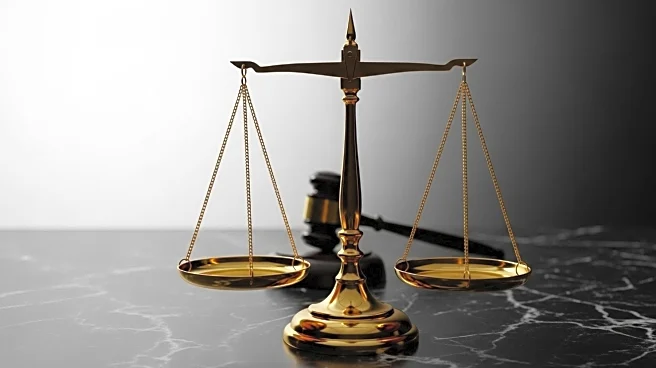What's Happening?
The Senate is on the verge of confirming Stephen Miran, a White House economic adviser, to a significant position at the Federal Reserve. This confirmation would mark the first time in 90 years that a sitting White House official will have a role in setting monetary policy. Miran plans to retain his position as chair of the White House Council of Economic Advisers, albeit without pay, while serving on the Fed board. This move comes as the Fed is expected to cut interest rates to support a weakening labor market. Miran's dual roles have raised concerns about potential conflicts of interest, given his previous criticism of the revolving door between the central bank and the executive branch.
Why It's Important?
The confirmation of Stephen Miran to the Federal Reserve board is significant as it represents a shift in the traditional separation between the executive branch and the independent central bank. This development could lead to increased political influence over monetary policy, which has historically been insulated from such pressures. The move aligns with President Trump's desire for a central bank more responsive to his political agenda, including advocating for steep rate cuts. This could impact the U.S. economy by potentially altering interest rate policies to favor political objectives, affecting inflation, employment, and overall economic stability.
What's Next?
If confirmed, Miran will participate in upcoming Federal Reserve meetings, influencing decisions on interest rates and monetary policy. His dual roles may lead to scrutiny from lawmakers and economists concerned about the independence of the Fed. The Senate's decision could set a precedent for future appointments, potentially increasing political influence over the central bank. Stakeholders, including financial markets and international trade partners, will be closely monitoring the Fed's actions and any shifts in U.S. economic policy.
Beyond the Headlines
Miran's appointment could have long-term implications for the Federal Reserve's independence and its ability to make unbiased economic decisions. The intertwining of political and monetary policy may challenge the Fed's credibility and its role as a stabilizing force in the economy. This development could also influence future nominations, encouraging candidates with strong political affiliations, thereby reshaping the central bank's governance structure.










